The Top 10 Blockchain-Based Storage Platforms
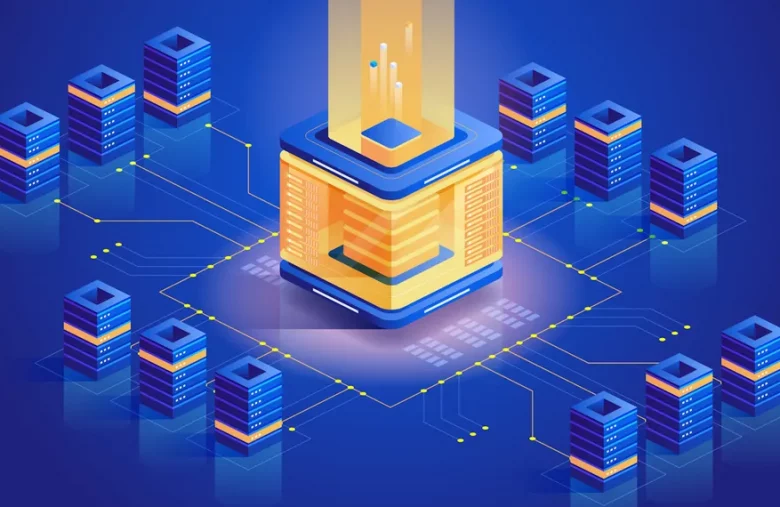
The world of online storage options is expansive, and these are some of the best blockchain-based options available.
Traditional data storage systems were great for some time, but they had several disadvantages, such as data breaches and vulnerabilities, which some people couldn’t put up with anymore.
That’s how blockchain-based storage technology came in, to create solutions for these challenges, which mainly stem from the centralization of data storage. Today, several platforms offer decentralized cloud storage services, and these are some of the best.
1. Filecoin
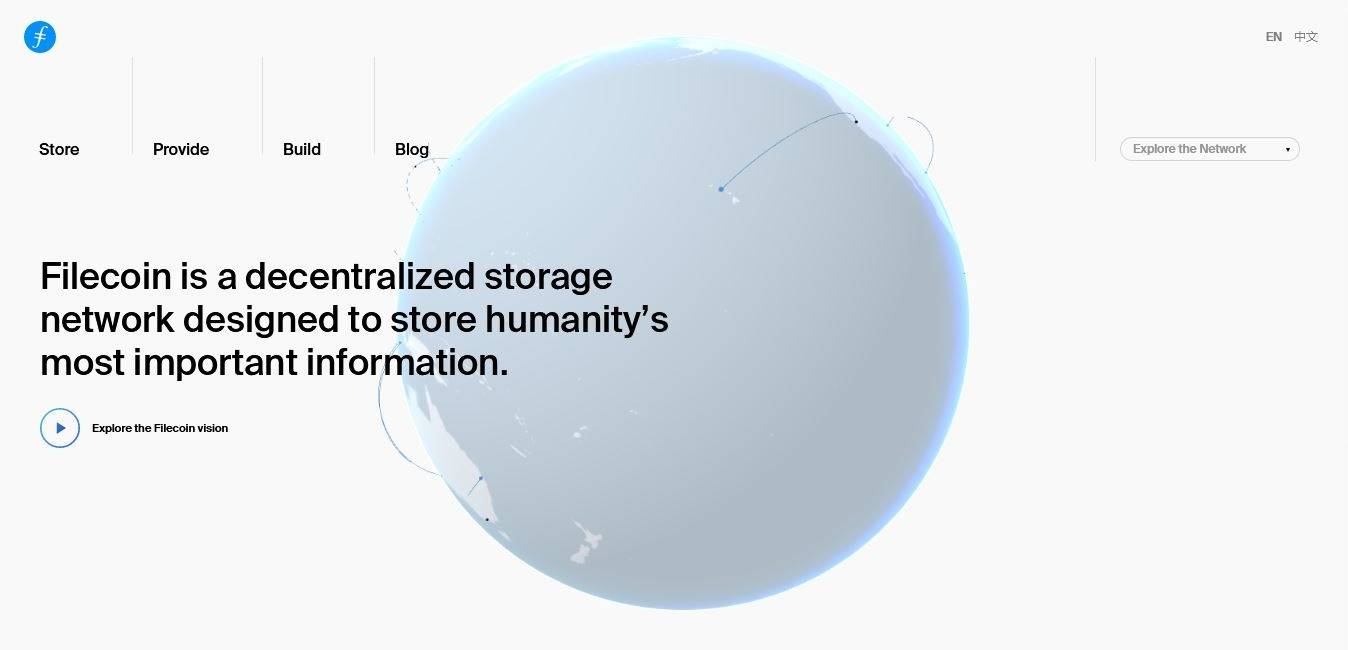
Filecoin was developed and launched in 2017 by Protocol Labs to create a more efficient, secure, and decentralized way to store and access online data. It uses a peer-to-peer system where people contribute their computer storage to the network.
It operates on two consensus mechanisms: Proof of Replication, where a miner proves they have a unique copy of data, and Proof of Space-Time, where miners prove the unique copy of data has existed in physical storage over a certain period. Filecoin’s native token, FIL, pays for data storage and rewards storage providers for contributing storage resources. If interested, find out more about how Filecoin works.
2. Internet Computer
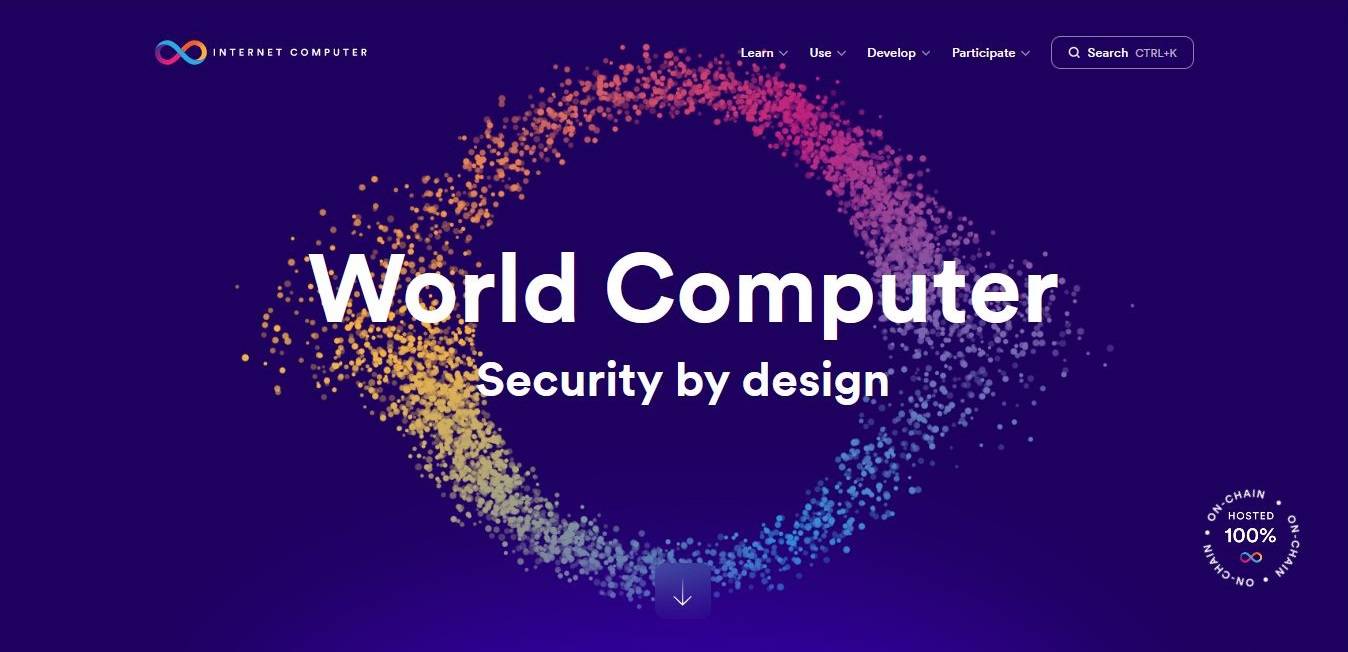
Internet Computer was created by the DFINITY foundation to extend the functionality of the Internet by creating a secure environment for running smart contracts, deploying decentralized applications, and hosting websites.
Powered by the Internet Computer Protocol, a 4-layer protocol running on individual nodes, the network operates each subnet independently yet asynchronously to collectively form a unified computing platform. Its reliance on independent data centers worldwide provides limitless scalability and high-performance computing, which can handle high transaction throughput.
The network’s native token, ICP, rewards storage contributors and pays transaction fees.
3. BitTorrent Token
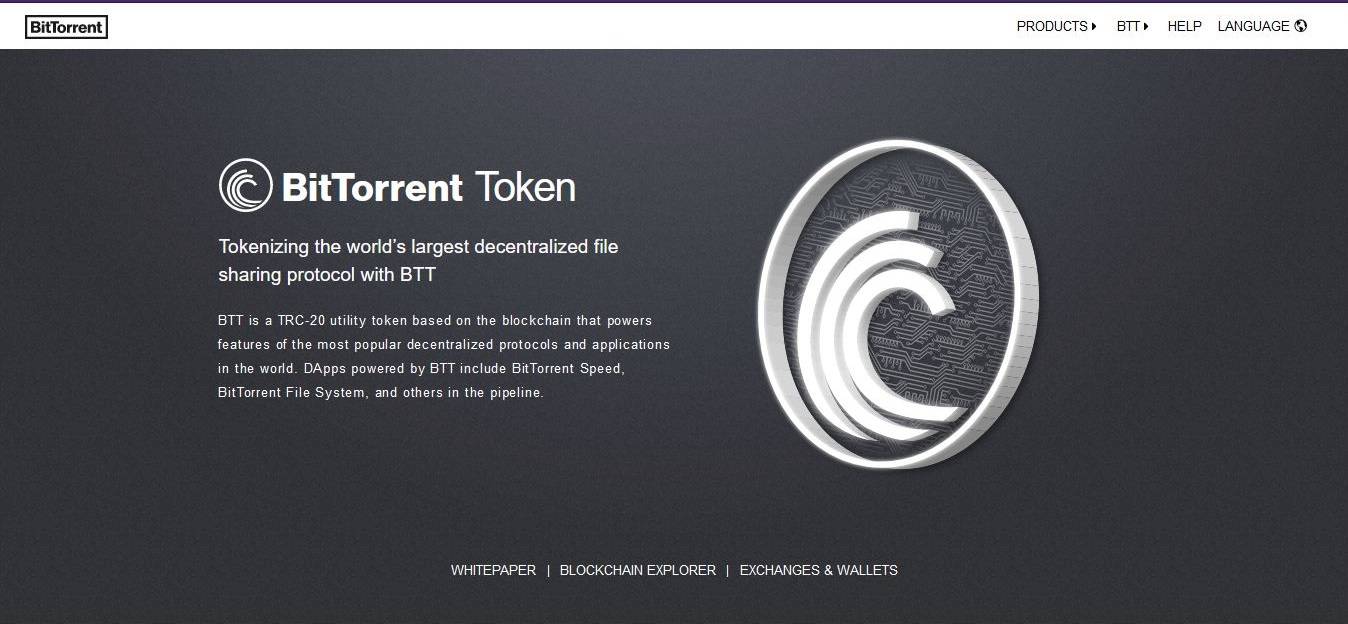
Known globally as a popular torrent client, BitTorrent launched a TRC-20 token, BTT, to provide users of the BitTorrent ecosystem with a utility token for transactions related to content distribution and file sharing.
BTT is a rewarding token for contributors of computer resources in the BitTorrent network. BitTorrent customers needing priority access and faster download speeds can pay for the services using BTT, and anyone who, after downloading torrent, provides seeding can start earning BTT. The BitTorrent network uses Tron’s smart contracts to enhance its services, offering a decentralized file storage system and bandwidth for faster downloads.
4. Holo
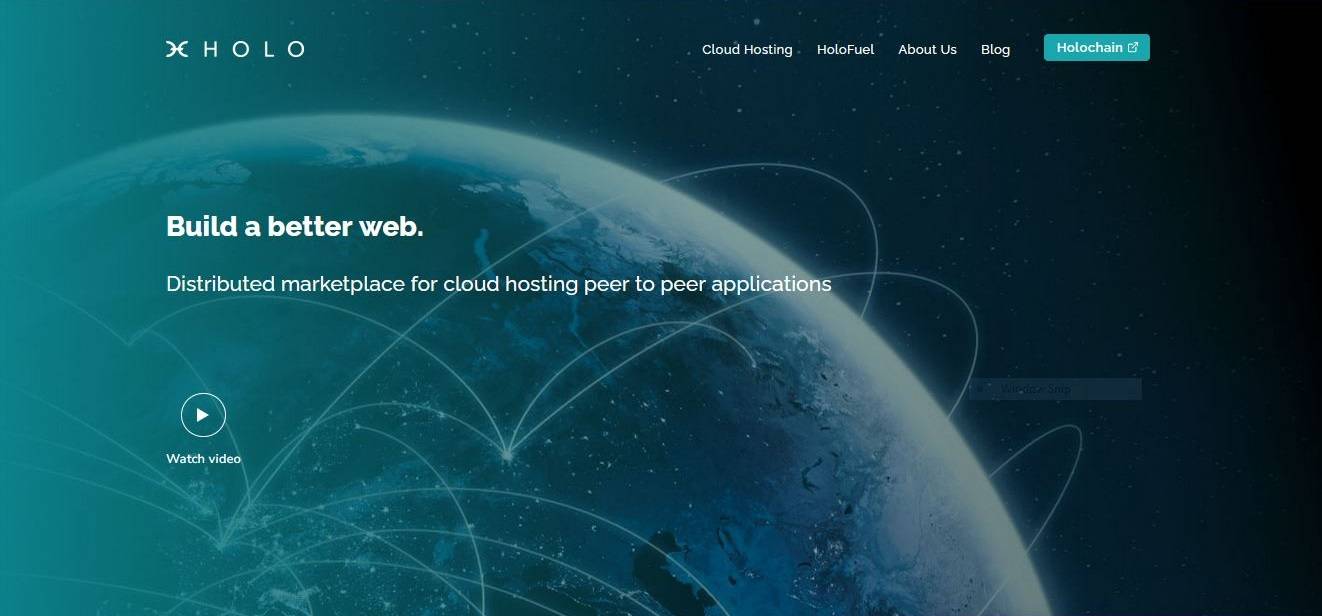
Holo is a decentralized marketplace for cloud storage where anyone can integrate their computer storage into the network for hosting peer-to-peer applications. In return, the host gets paid in HoloFuel, the internal micro-currency, while users who access and use applications hosted on the network pay HoloFuel for the service.
Holo also has an ERC-20 token (HoloToken) exchangeable with HoloFuel on a 1:1 ratio. The network is built on Holochain, and it leverages independent nodes which communicate and interact with one another, eliminating the need for global consensus, which allows for faster processing of transactions and higher throughput.
5. Ocean Protocol
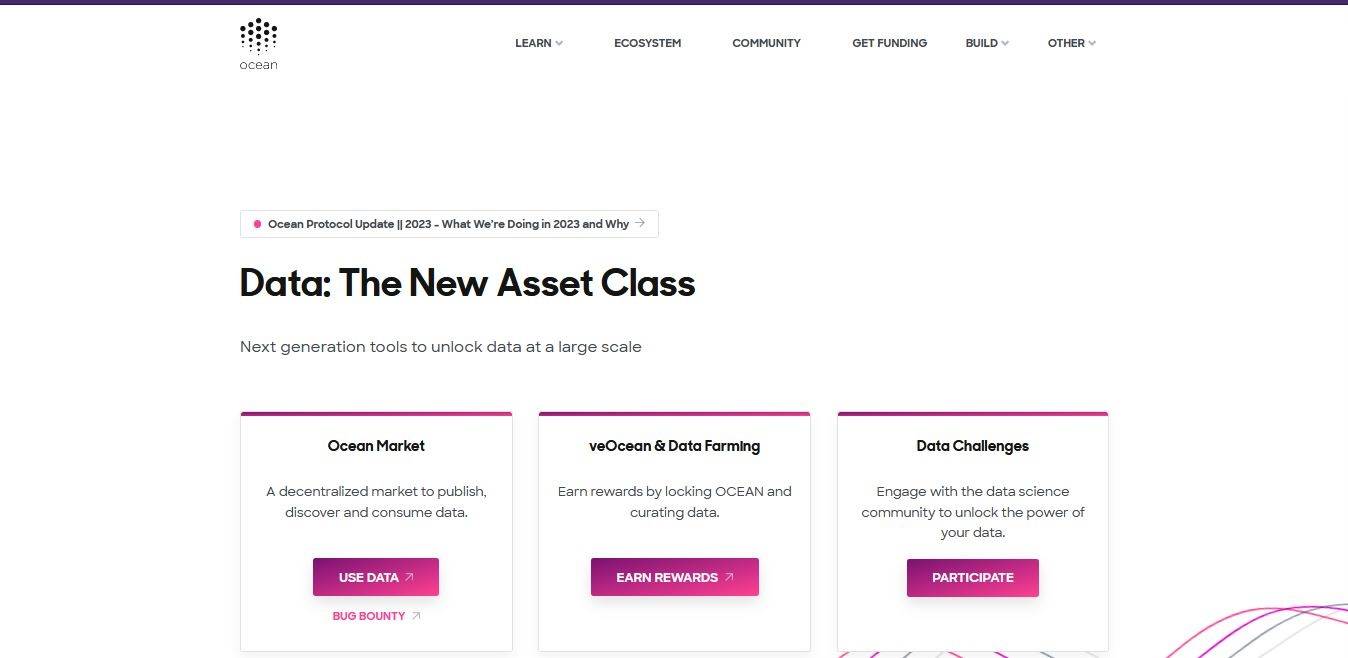
Ocean Protocol was built to enable open and equitable access to data. It provides a marketplace where users can securely publish and monetize their data while preserving privacy. It incorporates the Compute-to-Data concept, which allows users to use data without directly accessing it or compromising the raw data.
Its native token, Ocean Token, is used to reward data storage space providers, facilitate transactions, and for governance purposes. Ocean Protocol is also designed to be interoperable with other blockchains, such as Ethereum, Binance Smart Chain, and Polygon, through bridges that facilitate data transfer across different protocols.
6. Arweave
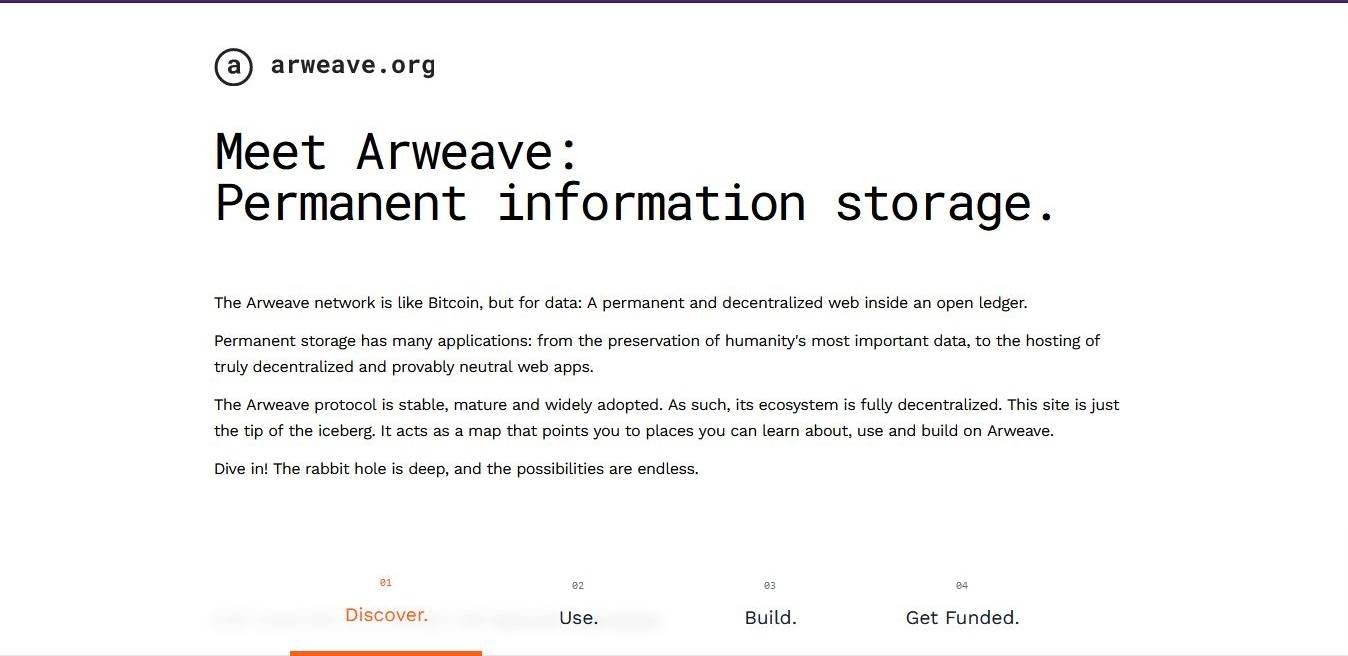
Traditional storage systems risk being tampered with and having data modified or deleted. Arweave was designed to solve this issue by providing a decentralized tamper-proof storage platform that permanently stores data.
It’s founded on “permaweb,” a layer built to connect users with global storage. It functions similarly to how HTTP/HTTPS facilitates communication between internet users and web servers, but with a serverless structure. This architecture enables automatic autoscaling depending on required storage, unlike traditional servers, where people will still pay for the capacity they never use.
Arweave is great for DeFi, DApps, content archiving, and data storage for research.
7. Sia Network
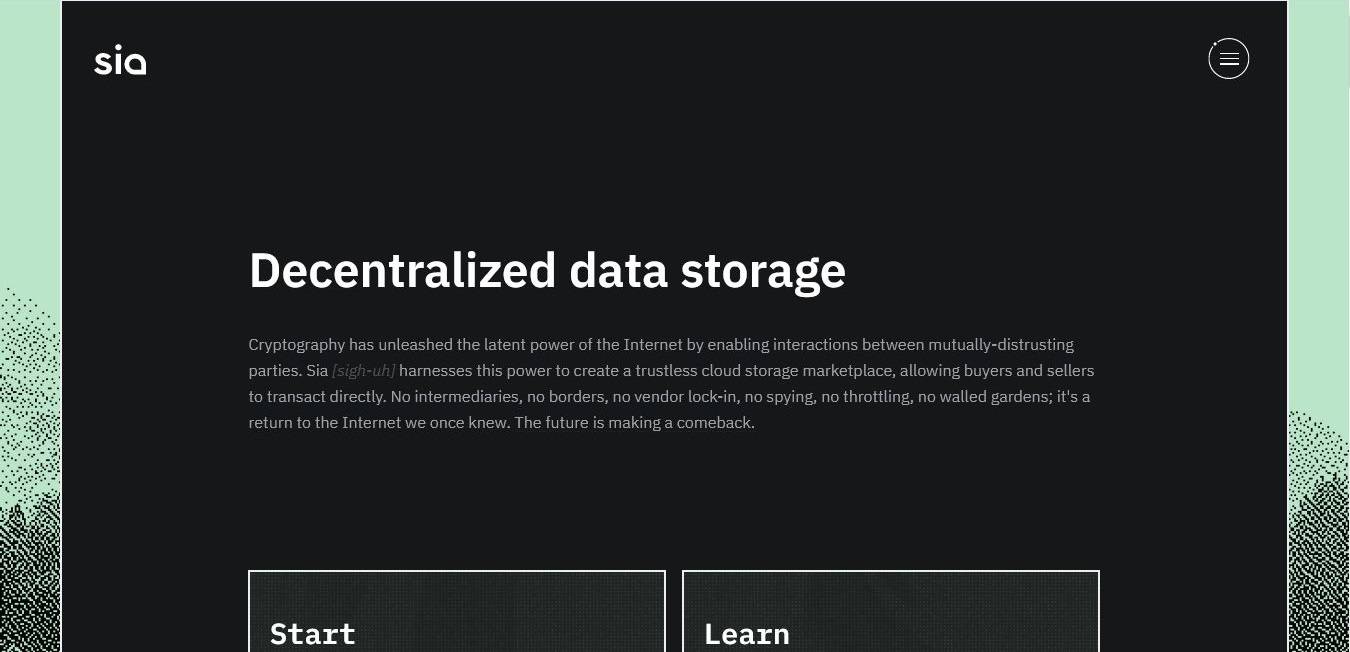
The Sia Network is a community of data storage enthusiasts and open-source developers. It provides a secure, decentralized cloud storage platform founded on a network of individual storage space contributors across the globe.
Users pay Siacoins to enter into storage contracts that define the terms of storage, duration, and price. Meanwhile, hosts must prove they are storing the data they claim using the Proof of Storage mechanism. The online marketplace allows buyers and sellers to interact trustlessly and without intermediaries.
On top of the network is a decentralized content delivery network known as Skynet that extends the hosting services in a censorship-resistant manner.
8. Flux
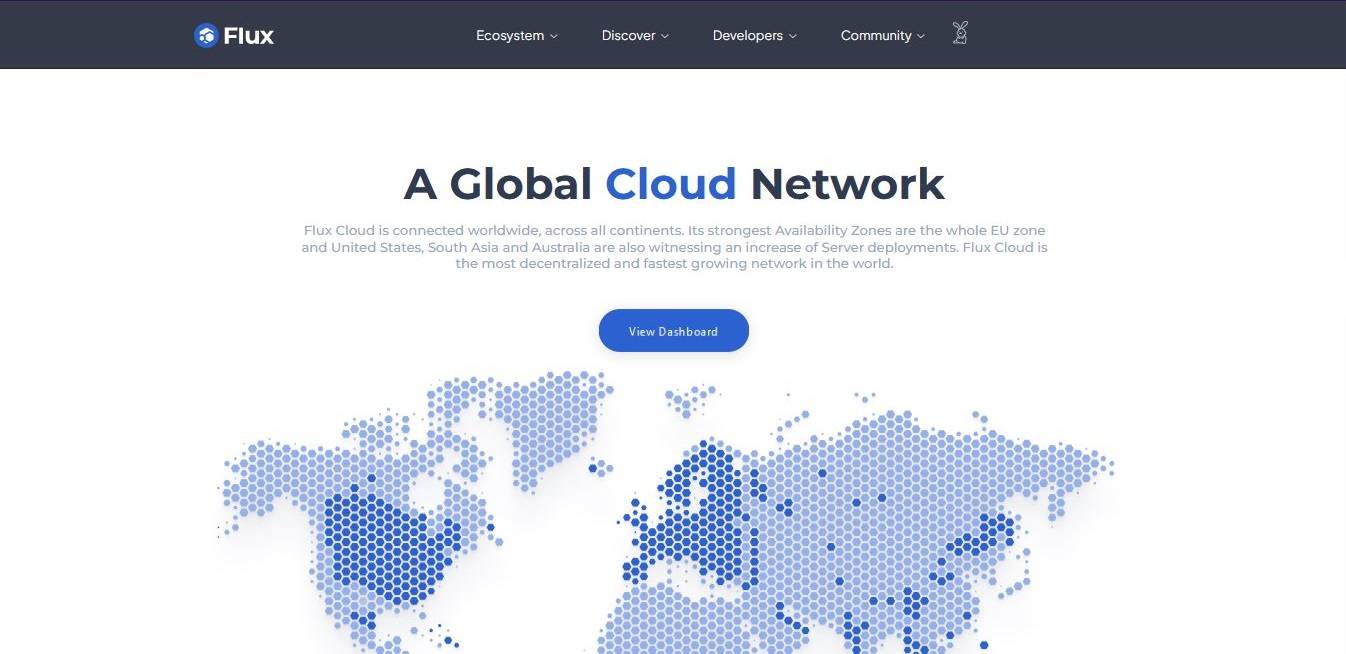
Flux is a blockchain-based cloud storage ecosystem that lets users build and deploy decentralized applications. It offers a people-powered network where users can utilize computing resources globally.
The platform is designed to focus on security, interoperability, and redundancy and allows users to pay for storage services based on provided specifications. Nodes in the network are compensated in Flux tokens. Flux is also an active campaigner of environmental sustainability, considering it leverages climate-sustainable blockchain solutions such as ASIC-resistant mining algorithms and the Proof of Useful-Work consensus mechanism.
A popular platform running on Flux is WordPress, which relies on it for decentralized web hosting.
9. Storj
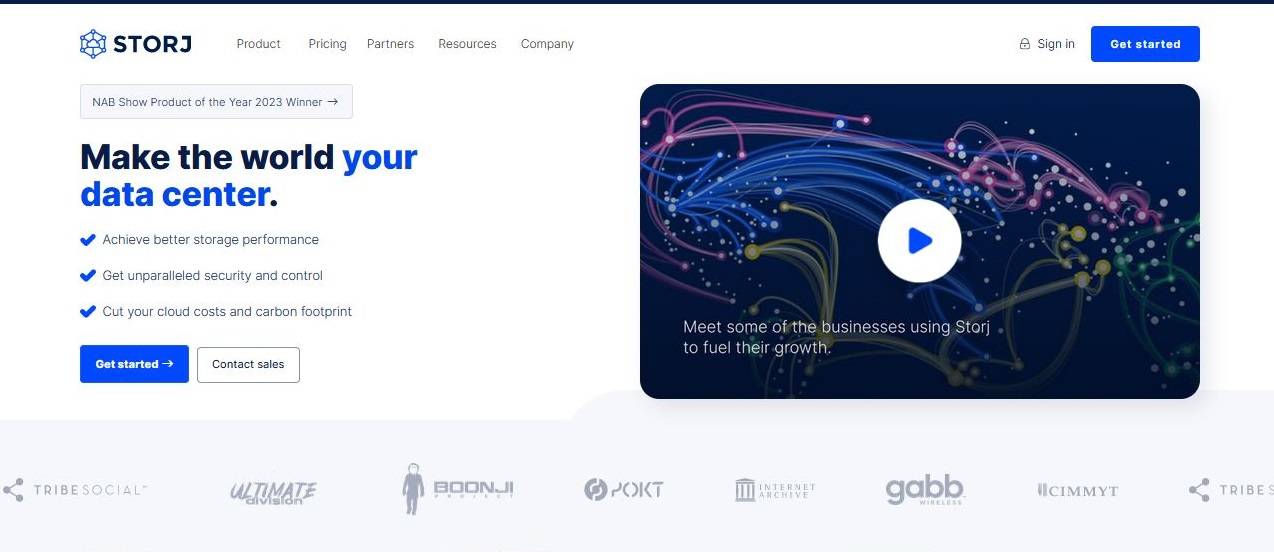
Storj is an open-source cloud storage project offering secure, private, affordable solutions. It’s founded on a peer-to-peer network of connected spare storage resources from individuals and organizations worldwide.
The network design uses small data pieces encrypted within the client side before being uploaded to the network. The network also implements coding techniques that ensure data availability and durability even when some nodes go offline.
Storj operates a native token (STORJ) for compensating storage node operators and facilitating transactions within the system. It’s great for archiving, content distribution, and application data storage.
10. Akash Network
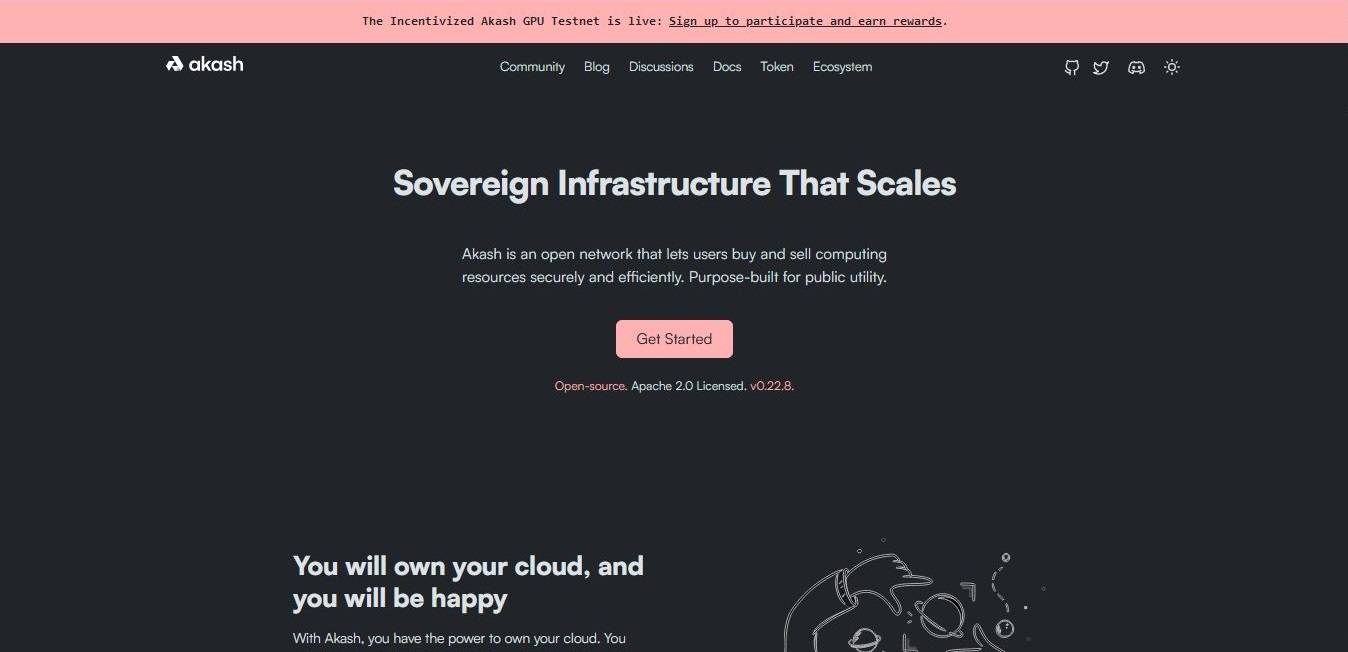
Akash Network is an open platform for the secure and efficient trading of computing resources. Its technology is founded on Supercloud, a cloud architecture that enables the migration of applications across different cloud providers and availability zones.
To get storage services, users submit their budget prize, and hosts compete for business which often results in more affordability than other cloud systems. It also uses the proof of stake mechanism to regulate the participation of node operators.
The network’s native token, AKT, is used for governance, securing the blockchain, incentivizing participation, and as a store or exchange of value. Akash Network is attractive to developers seeking decentralized, affordable cloud computing services.
Are Blockchain-Based Storage Platforms the Future?
Blockchain-based storage platforms will play a significant role in the future of data storage owing to their compelling advantages over traditional centralized systems. From decentralized storage to enhanced security to censorship resistance, these platforms align well with the growing market of people invested in better data storage.
While they may face scalability issues and slow user adoption, the potential benefits of these platforms far outweigh the concerns. It’s only likely that their market stake will keep growing.



